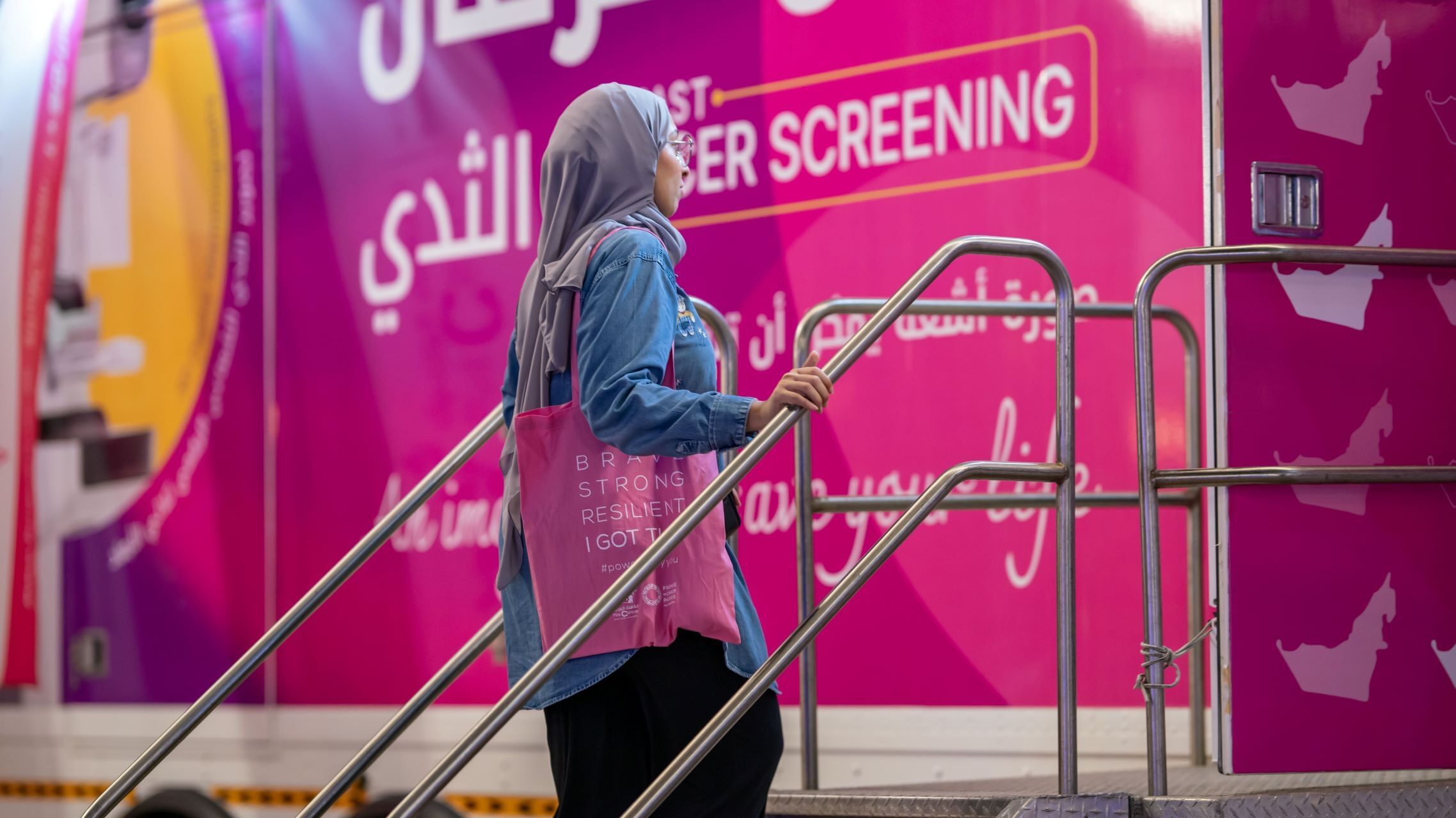Newsfeed

As October approaches, it’s time to start a vital conversation. Breast Cancer Awareness Month is a reminder of the importance of proactive healthcare and early detection.
Breast cancer remains one of the most common cancers globally, and regular screenings can be life-saving. With Breast Cancer Awareness Month nearing, it’s the perfect time to prioritise routine check-ups and spread awareness about prevention and early intervention.
In the UAE, numerous mobile clinics offer comprehensive breast cancer screening services. You’ll find facilities providing everything from mammograms to advanced diagnostics for free, making it easier than ever to take control of your health.
Pink Caravan
Launched in 2011 under the patronage of His Royal Highness Sheikh Dr Sultan bin Mohammed Al Qasimi, Ruler of Sharjah, and Her Highness Sheikha Jawaher Bint Mohammed Al Qasimi, Pink Caravan is a nationwide breast cancer initiative under the Friends of Cancer Patients’ “Kashf” program, dedicated to raising awareness about breast cancer, promoting early detection, and providing screening methods across the UAE. Below you can find their screening schedule.
- Sunday, October 6, 2024, Abu Dhabi
- Sunday, October 13, 2024, Sharjah to Ras Al Khaimah
- Saturday, October 19, 2024, Fujairah
- Sunday, October 20, 2024, Dubai
Emirates Health Services
Following the success of their first edition, Emirates Health Services, represented by the Saqr Hospital has resumed its early detection breast cancer awareness campaign organised in collaboration with the Friends of Cancer Patients (FOCP) under the slogan “Initiate Action, Receive Hope.” These charitable organisations will continue to run engine their mobile clinics equipped with mammographies and ultrasound machines providing high-quality diagnostic services until November 26, 2024.
Why is early detection important?
According to the World Health Organisation (WHO), countries with a high Human Development Index (HDI) have a ratio of 1 in 12 women to be diagnosed with breast cancer in their lifetime with an average of 1 in 71 women losing their lives because of it. As such, regular early detections are far more effective when treated to lower risks.








